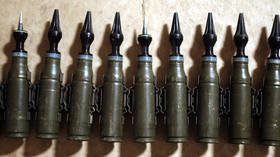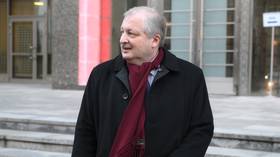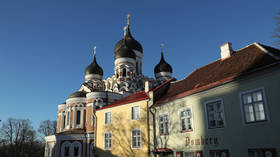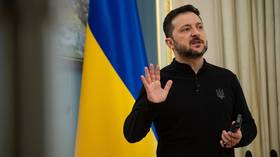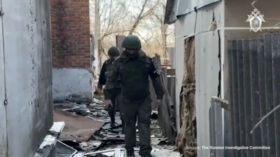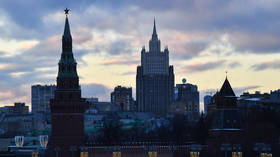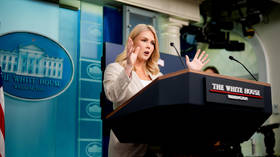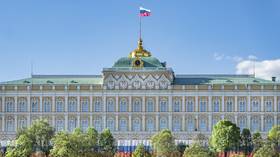Trump’s son-in-law to redevelop NATO-bombed buildings
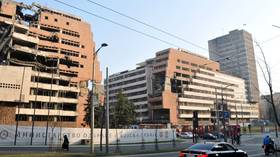
Former US President Donald Trump’s son-in-law Jared Kushner and another former White House aide have landed a contract with the Serbian government to develop a luxury hotel on the site of a military complex that was bombed by NATO in 1999.
Belgrade signed a 99-year lease deal on Wednesday with Affinity Global Development, a Kushner-affiliated investment firm that boasts such backers as Saudi Arabia’s sovereign wealth fund. Working in partnership with Richard Grenell, who served as acting director of national intelligence in the Trump administration, Kushner plans to convert the heavily damaged former Yugoslav army headquarters into a $500 million hotel.
Grenell, then ambassador to Germany, was working as a special envoy to the Balkans in 2019, when he first suggested that US investors redevelop the bombed-out army complex. Kushner, who also has luxury hotel projects planned in neighboring Albania, said the redevelopment will “further elevate Belgrade into the premier international destination it is becoming.”
The Serbian project will also include apartments and retail space, as well as a memorial to the people killed during NATO’s bombing campaign. The agreement calls for redeveloping a three-block area and sharing profits with the Serbian government. The government will retain ownership of the site and will reportedly nullify the lease if the development isn’t completed on time.
Opposition party politicians led a protest of the venture on Thursday, displaying signs saying, “Stop giving army HQ as a present to American offshore companies.” Lawmaker Dragan Jonic, who attended the protest, told reporters, “Somebody is trying to clear up the mess that they did, and they are not those who should do anything in this place.”
A Serbian official defended the Kushner-Grenell deal on Wednesday, saying in a statement, “The government of Serbia has chosen a reputable American company as a partner in this venture, which will invest in the revitalization of the former Federal Secretariat for National Defense complex.”
Kushner’s investment funds are funded primarily by foreign backers, including investors in Israel, Germany, and the United Arab Emirates. Critics have suggested that projects like the Serbian hotel create potential conflicts of interest because if Trump wins back the presidency, his foreign policy decisions could advance the financial interests of his family members.
Congressional Democrats called for an investigation of Kushner’s overseas ventures in March, after the New York Times reported on his development plans in the Balkans. “Jared Kushner is pursuing new foreign business deals just as Donald Trump becomes the presumptive Republican nominee for the presidency,” Representatives Jamie Raskin (D-Maryland) and Robert Garcia (D-California) said in a statement in March.
Kushner has argued that as a private citizen, he is free to pursue overseas business opportunities, including those that involve foreign governments.
In 1999, NATO intervened in the conflict between the Serbian government and Albanian separatists in Kosovo. Western planes bombed targets in Serbia and Montenegro for 78 days, forcing Belgrade to withdraw police and the army from Kosovo. NATO-led peacekeepers were then deployed in the province.
The Western-backed Albanian authorities declared the independence of Kosovo in 2008. Serbia and a number of countries, including Russia and China, still consider Kosovo Serbian territory.
